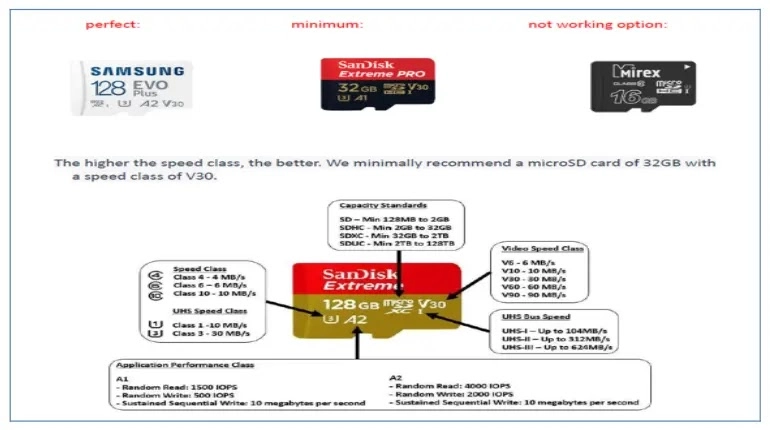Hackers Utilize Raspberry Pi as a Versatile Hacking Tool
In the ever-evolving world of cybersecurity, hackers are constantly seeking new and innovative ways to exploit vulnerabilities and gain unauthorized access to systems. One unlikely device that has caught the attention of hackers is the humble Raspberry Pi – a credit card-sized computer initially designed for educational purposes. However, in the hands of skilled hackers, this unassuming Device has been transformed into a powerful hacking tool, capable of executing a wide range of attacks and compromising even the most secure networks.
Raspberry Pi Transformed by Hackers into a Powerful Hacking Device
The Raspberry Pi’s small size, low cost, and versatility have made it an attractive target for hackers looking to create covert and portable hacking devices. With its ability to run various operating systems, including the popular Kali Linux distribution, the Raspberry Pi can be easily configured to carry out a multitude of hacking tasks.
One of the primary advantages of using a Raspberry Pi for hacking is its inconspicuous nature. Unlike traditional laptops or desktop computers, the Raspberry Pi can be easily concealed and deployed in a variety of environments, making it an ideal tool for physical penetration testing and covert operations.

Hackers have developed numerous techniques to transform the Raspberry Pi into a formidable hacking tool. One popular method involves installing Kali Linux, a specialized distribution designed for penetration testing and ethical hacking. With Kali Linux, hackers gain access to a vast array of pre-installed hacking tools, ranging from Network scanners and password crackers to wireless attack utilities and exploitation frameworks.
Another common approach is to use the Raspberry Pi as a rogue access point or a man-in-the-middle (MITM) device. By configuring the Raspberry Pi to act as a wireless access point, hackers can trick unsuspecting users into connecting to their malicious network, allowing them to intercept and manipulate network traffic, steal sensitive information, or launch further attacks.
Hacking Tools and Techniques Employed on Raspberry Pi
The versatility of the Raspberry Pi has enabled hackers to employ a wide range of hacking tools and techniques, making it a formidable weapon in their arsenal. Here are some of the most common hacking tools and techniques used on the Raspberry Pi:

- Network Scanning and Reconnaissance: Tools like Nmap, Wireshark, and Kismet are commonly used on the Raspberry Pi to scan networks, identify vulnerabilities, and gather information about potential targets.
- Wireless Attacks: The Raspberry Pi’s ability to act as a wireless access point or a wireless adapter makes it an ideal platform for executing wireless attacks. Tools like Air crack-ng, Wifite, and Fluxion can be used to crack Wi-Fi passwords, perform man-in-the-middle attacks, and launch various wireless exploits.
- Web Application Hacking: With the Raspberry Pi’s ability to run web servers and browsers, hackers can use tools like Burp Suite, OWASP ZAP, and SQL map to identify and exploit vulnerabilities in web applications.
- Password Cracking: Tools like John the Ripper, Hash cat, and Cain & Abel can be used on the Raspberry Pi to crack passwords and recover encrypted data.
- Reverse Engineering and Exploitation: Frameworks like Metasploit and BeEF (Browser Exploitation Framework) can be used on the Raspberry Pi to develop and execute exploits against vulnerable systems.
Ethical Considerations and Legal Implications
While the Raspberry Pi’s transformation into a hacking tool has opened up new possibilities for cybersecurity professionals and researchers, it has also raised ethical and legal concerns. It is crucial to understand that using the Raspberry Pi or any other device for unauthorized hacking activities is illegal and can result in severe consequences.
Ethical hackers and penetration testers must obtain explicit permission from the system owners before conducting any testing or hacking activities. Failure to do so can result in criminal charges, fines, and potential imprisonment.
Conclusion
The transformation of the Raspberry Pi into a hacking tool by hackers is a testament to the ingenuity and resourcefulness of the cybersecurity community. While this development has opened up new avenues for research, penetration testing, and ethical hacking, it has also highlighted the need for increased vigilance and robust security measures.
As the Raspberry Pi continues to gain popularity among hackers, it is crucial for individuals and organizations to stay informed about the latest threats and vulnerabilities. Implementing strong security practices, such as regular software updates, network monitoring, and employee awareness training, can help mitigate the risks associated with these covert hacking devices.
| If you are reading Hackers Transform Raspberry Pi Into A Hacking Tool then also check our other News : | |
| Pocket Sized PC with Intel N100 | Intel core Processor Series 1 Launched |
Hackers Transform Raspberry Pi Into A Hacking Tool
- What is Raspberry Pi?The Raspberry Pi is a credit card-sized, low-cost computer designed for educational purposes. It is a versatile device that can run various operating systems and perform a wide range of tasks, from basic computing to complex projects like robotics and home automation.
- How do hackers transform Raspberry Pi into a hacking tool?Hackers can transform the Raspberry Pi into a hacking tool by installing specialized operating systems like Kali Linux, which comes pre-loaded with a vast array of hacking tools and utilities. They can also configure the Raspberry Pi to act as a rogue access point, a man-in-the-middle device, or a hardware keystroke injector, among other malicious applications.
- Is it legal to transform Raspberry Pi into a hacking tool?Using the Raspberry Pi or any other device for unauthorized hacking activities is generally illegal and can result in severe consequences, including criminal charges, fines, and potential imprisonment. Ethical hackers and penetration testers must obtain explicit permission from the system owners before conducting any testing or hacking activities.
- What are some common hacking tools used on Raspberry Pi?Some common hacking tools used on the Raspberry Pi include network scanners like Nmap and Wireshark, wireless attack tools like Aircrack-ng and Wifite, web application hacking tools like Burp Suite and SQLmap, password cracking tools like John the Ripper and Hashcat, exploitation frameworks like Metasploit and BeEF, and social engineering tools for executing USB drop attacks or rogue access point attacks.
